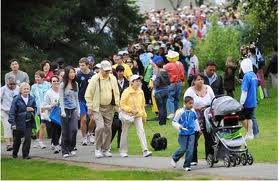THE QUESTION: To what extent should I, as a citizen, respond to globalization?
I finally can answer this nagging question once and for all. I understand now that I have always contributed to my global community as a citizen. Globalization is a great and vast window of opportunity for all human beings if handled properly and responsibly. Yes, there are drawbacks. Yes, globalization doesn't help everyone. However, I respond to globalization positively. Globalization is like a wild animal. If neglected and mistreated, the animal will become a terrible death machine. If handled with care, the animal will become harmless.
Globalization refers to the global connections of the world. Because of these global connections, what happens in one country will also affect another country on some level. Each and every person on earth has contributed for a global cause, no matter how small or insignificant. Another way to say this is, each an every person has affected his or her neighbour, city, country, Continent, and global community, no matter how small or insignificant the cause and affect may seem.
For example, I help my parents in the garden on a regular basis in the summer months. Something as simple as planting a tree or shrub brings clean air for the community and helps the city overall.
By purchasing a particular product or by selling a particular product, that person is contributing/responding to his/her global community as a global citizen. For example, last year I purchased a new computer over the Internet. Many of the parts of the computer had to be shipped from distant countries to a particular place to be assembled and shipped to my home country. By purchasing an item online, I gave working opportunities to a global community. People are needed to assemble and deliver the product to my doorstep.
Finally, one of the most important things I am currently doing for my global community is helping to find a cure for Type 1 Diabetes. This is a disease that affects the entire world. If we, as a global community, could find a cure then the lives of millions would be saved.
Walk to Cure Diabetes
RAP UP
This course has taught me so much. I am now aware of the global issues towards globalization. By creating this blog, I have contributed, as a global citizen, to the awareness and responsibilities of globalization. I hope that by reading this blog, others will also learn and understand the problems, concerns, and issues of our global world.
Just by reading this final blog entry, we are RESPONDING to the global world and the issues that follow.
Thanks for reading! Thanks for Caring!
















































